|
MRP Site Navigation
MRP Home Page
MN 12 Step Groups
MN Treatment Centers
National AA Intergroups
National NA Intergroups
National Al-Anon Intergroups
Other Recovery Groups
Online Meetings
AA History
Recovery Events
Links
Alcoholism
Links
Codependency Links
Commercial
Sites
Drug
Addiction Links
Eating Disorder Links
Gambling
Addiction Links
Gay
& Lesbian Links
Mental & Emotional Health
Religion
& Spiritual Links
Sexual Addiction Links
Women's Issues
Bookstore
Audio
Reading
Room
AA Literature
Recovery Articles
Personal
Stories
People In Recovery
Graphics
Supporting the Minnesota Recovery Page
Contact Us
Like this page?
Click here to add
to your favorites

Principles of Recovery
Roll-Up Display Set
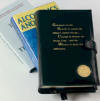
Big Book and 12 Traditions Combo Bookcover

The Language of Letting Go Journal
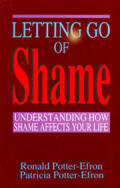
Letting Go of Shame
 Understanding
How Shame Affects Your Life Understanding
How Shame Affects Your Life

The Sermon on the Mount: The Key to Success in Life and the Lord's Prayer : An Interpretation


AA Key Chain
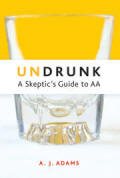
Undrunk

A Skeptics Guide to AA

Lord's Prayer Print

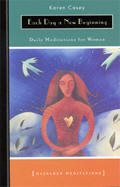
Each Day a New Beginning - Daily Meditations
for Women

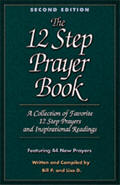
The 12 Step Prayer Book Second Edition Volume
1

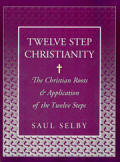
Twelve Step Christianity

The Christian Roots & Application of the Twelve Steps
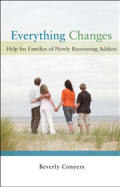
Everything Changes

Help for Families of Newly Recovering Addicts
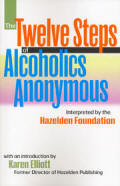
The Twelve Steps Of Alcoholics Anonymous
 Interpreted
By The Hazelden Foundation Interpreted
By The Hazelden Foundation
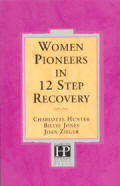
Women Pioneers in
12 Step Recovery

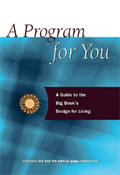
A Program For You - A Guide To the Big Book's
Design for Living
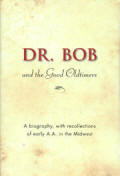

Dr Bob and the Good Old timers - Hardcover

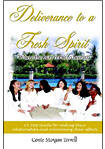

Deliverance to a Fresh Spirit: 12-Step Guide for Ending Toxic Relationships and Overcoming Their Effects

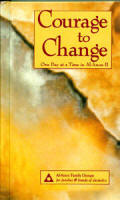
Courage to Change Hardcover

One Day at a Time in Al-Anon
|
Tools of Recovery
|
Abstinence |
Early in recovery a
period of total sexual abstinence is a benefit. Some
people call this a period of celibacy. Later
abstinence will come to mean abstaining from your
bottom line behaviors - perhaps you inner and middle
circle behaviors. |
|
Accountability Partners and Agreements |
Being accountable to
someone is an important anchor for sobriety. Make an
agreement with someone to check in - daily if at all
possible. That person should have a list of
questions - very specific questions - to ask
you and that you have agreed to answer honestly.
Your partner may be a member of your group, a friend
in recovery, your therapist, or a good friend. A
Fair Witness. An accountability partner must be
someone you trust and with whom you feel safe.
Shaming by and accountability partner is not
acceptable. It is not recommended that your ask you
life partner to be your accountability partner. |
|
Anonymity and Confidentiality |
Guard other's safety by
not repeating what is heard in a meeting or other
confidential setting; value yourself and others by
practicing "principles before personalities." By
using first names only, we guarantee that everyone
will feel safe to share, and we place everyone on an
equal footing. Living respectfully of others is an
important thread in the fabric of recovery. |
|
Avoid Triggering Situations |
Choose to avoid
triggering situations. Or make them safe if you
can't avoid them. You don't have to go to business
meetings at nude bars. You can tell the others that
going to such places interferes with your spiritual
growth. If you can't avoid some triggers such as
working on a computer, make it safe for yourself.
Install blocking software (so that you don't know
the password), keep your door open, turn the screen
toward the door, put the computer at home in a
public area, never go online when you are alone. You
can figure out the details. Avoiding triggers is
respecting your own boundaries. |
|
Balancing |
Balancing your life is
important. To help build balance you life and
relationships, each day remember to develop personal
relationships with people other than your partner.
Engage in pleasure, education, rest, creativity,
spiritual involvement, and play. Becoming compulsive
about recovery does not make you sober and healthy.
It merely substitutes another compulsion.
|
|
Carry Recovery With you at All Times |
Carry Recovery with You. That may be
reminders, cues, instructions, or anything else that
will help. Those things might include:
Phone numbers of recovery friends.
Photographs of loved ones.
The 12 things to do each day to
stay sober
The 12 Things to do to avoid a slip
Cost Card (add up the costs of your addiction )
A list of your bottom lines
Or anything else that will work. |
|
Combat Physical Inactivity |
Spend time doing fun
activities, and getting involved in sports,
exercise, and other physical activities. This is
useful for all addicts and particularly important
for those who became sedentary with their addictions
such as cyber sex addicts. |
|
Combat Isolation |
Spend time with people.
Isolation is a part of your disease. Find ways to be
in contact with people. Meetings are good, but the
company others is good to. The only limit is that
those people must support your sobriety even if they
don't know you are an addict. |
|
Define Your Sobriety and Bottom Line Behaviors |
In defining our own sobriety, we make
a list of all of our acting out behaviors. Making
this list is very specific and is followed by a
solemn commitment to your self not to engage in
those behaviors. We choose, one day and one
situation at a time, not to engage in those
behaviors.
Set your bottom lines, discuss
your bottom lines, know your bottom lines, observer
your bottom-lines. That is, after all, the
bottom-line. |
|
Higher Power |
It is important to
explore whatever beliefs you have in a power greater
than yourself. This may be God as you know God
through your religious beliefs or values. Your
higher power may be nature, the energy of the
universe, your 12 Step group, or any other thing
that is greater than you are. There are no religious
requirements or beliefs necessary for recovery. Some
of people have either lost their spirituality before
coming to recovery and some have never had any
spiritual beliefs. In recovery you may experience a
new or reawakened spiritual feeling. Some of these
awakened feelings may challenge your religious
upbringing. Be open-minded. |
|
Honesty |
Work to eliminate
denial, half truths, white lies, fibs, partial
truths and overt dishonesty with ourselves and
others. Tune up your crap detector. |
|
Interrupt your Acting Out |
Develop and memorize a
set of strategies to help you to avoid acting out.
Use these daily. |
|
Journaling |
Record your thoughts,
feelings, and insights. This can be an enormous help
in developing and repairing your relationship with
yourself. |
|
Literature and Learning |
Read some recovery literature
everyday. Daily reading helps keep your focus on
recovery. If you get one good new idea from a whole
book, it was worth it.
Become more knowledgeable about
you addiction by reading relevant books and visiting
informational websites |
|
Priority One |
Make Recovery
your number one priority. All of your hopes and
plans, your very survival depends on your recovery.
It may not make sense at the beginning but your
order of priority should be:
First, Sobriety
Second, Physical and Mental Health
Third, Financial
Fourth, Family Relationships |
|
Meetings |
Meetings are where we
share our experience, strength and hope with each
other to better understand our common problem and
work together towards the solution. This is where
you meet other recovering addicts. We failed to do
it alone, but we can do it together. You can listen
to others tell of what it was like, what happened to
them and what it is like now. You listen for the
similarities and discard the differences. In these
meetings you learn valuable information about your
disease and how the 12-step program works. Members
give and receive support, work the steps, and share
experience, strength and hope in a safe environment.
At first, attend as many meetings as you can. If
possible, attend meetings daily for the first 90
days and to practice abstinence to the best of your
ability. |
|
One Day at a Time |
The thought of making a
pledge to never act out sexually again can be
discouraging and overwhelming. It's important not to
worry about the past or project the future, just
stay in the moment. If necessary take it one hour or
even one minute at a time. If you become overwhelmed
by tasks to be accomplished, make yourself a list of
things to do. Keep them small and simple. Tasks that
can be accomplished in five minutes or less can be
as rewarding as major long-term tasks. Especially in
that moment of confusion and bewilderment. Be
mindful when your attention is not in the moment.
When your mind dwells in the future or the past, you
can do nothing. Remember, the only time you can ever
do anything is right now. |
|
Prayer and Meditation |
Regular spiritual
practices that help us connect with our Higher Power
strengthen recovery. We seek guidance and strength;
also turning things over to our Higher Power. This
is a means of are means of establishing conscious
contact with a Power greater than ourselves.
|
|
Professional Help |
Your addiction may have
been a subconscious way of self-medicating yourself
for wounds you carry from your earlier life. It is
important to work with a professional who
understands sexual addiction or is willing to learn.
This is another way to keep yourself on the path of
recovery. Remember that recovery is much more than
abstinence from sexually addictive behaviors. You
may want to seek out group therapy, individual
therapy, or both. If possible, including your spouse
or partner in therapy, both individually and as a
couple, can be a great benefit to the recovery of
both and to your relationship. |
|
Service |
Service is helping
ourselves by helping others. Service includes
participating in activities that support the your 12
Step group as a whole, including leading meetings,
sponsoring, reaching out to newcomers, telling your
story, serving as treasurer, writing an article for
the newsletter, or volunteering in other ways. You
may serve by helping your neighbors, volunteering in
your church, and so on. The benefit of service is
not limited to serving in the recovery community.
The benefit is in connecting with others through
their needs rather than your own. |
|
Set Boundaries |
Personal boundaries
became blurred or even non-existent when we were in
our sexual addiction. Part of recovery is
identifying appropriate boundaries or limits with
respect to people, places and activities. For
example, we might choose to set a boundary regarding
keeping company with people who continue in their
addictions. This is self-protective and healthy.
When we were in our addiction there was nothing we
would not do and nothing we felt we could not or
should not do. Now, in recovery, we must set
boundaries to keep ourselves healthy and safe.
|
|
Sharing at Meetings |
Being honest and
vulnerable in front of fellow recovering addicts is
frightening but worth it. Many of us believe we
recover in direct proportion to our willingness to
share. Some recovering addicts commit to talking
during the discussion time in each meeting. |
|
Slogans |
Slogans
are simple statements that can be used in crisis
situations, so that we have some basic guidelines.
These include...
One Day at a Time
*Live and Let Live
*Easy Does It
*Progress, Not Perfection
*First Things First *Keep It
Simple
*Let Go and Let God *
HOW (How our program works:
Honesty, Open-mindedness, Willingness)
*HALT (Not allowing ourselves to
become too Hungry, Angry, Lonely or Tired) |
|
Sponsorship |
As part of the surrender
process, we admit our weaknesses and we ask others
for help. A sponsor is a recovering addict with more
sobriety and Program experience than you. Your
sponsor, should be someone with whom you can
communicate. A sponsor provides a framework for a
recovery plan, working the Twelve Steps, and can
bring emotional support at difficult times. Find a
sponsor immediately, even if they are only
temporary. You can always change later if the
relationship does not work out. |
|
Support Network |
Meeting with other people to discuss
your journey helps you to know you are not alone and
allows you to get another perspective on your
struggles.
Cultivate communication with other
recovering people between meetings, either by phone,
the Internet or in person; asking for support when
needed. These relationships are best cultivated in
non-crisis times. Some recovering people commit to
talk with someone everyday |
|
Telephone |
The Telephone is your
lifeline between meetings. Get phone numbers from
other members in your program. Get use to calling
someone daily. It is an important way to break out
of the isolation that is so strongly a part of the
disease. You may be shy and hesitant at first but by
training yourself to call someone, it will be easy
to place that call when that moment of crisis
arises. And it will! |
|
The "S.A.F.E" Formula |
The "S.A.F.E" Formula
is an easy way to define addiction. If the following
elements are present, then the person's sexual
problems could be called an addiction:
Secret
- It is a secret. Anything that cannot pass public
scrutiny will create the shame of a double life.
Abusive
- It is abusive to self or others. Anything that is
exploitive or harmful to others of degrades oneself
will activate the addictive system
Feelings
- It is used to avoid or is a source of painful
feelings. If sexuality is used to alter moods or
results in painful mood shifts it is clearly part of
the addictive process
Empty
- It is empty of a caring committed relationship.
Fundamental to the whole concept of addiction and
recovery is the healthy dimension of human
relationships. The addict runs a great risk by being
sexual outside a committed relationship. |
|
The Twelve Steps |
Working the steps is the foundation
of recovery; they are a set of spiritual practices
for personal growth and recovery. Meetings may keep
you sober for some time, but the Twelve Steps are
vital for a stable and happy recovery. The Steps are
the means by which you move from the problem of
addiction to the solution of recovery. You learn
about the Steps by reading the literature, by
attending Step study meetings, and by working with a
knowledgeable sponsor.
Read the 12 Steps and Work them.
Join a step study, discuss a step at your 12 Step
meetings, with your sponsor, therapist,
accountability partner and others who are supportive
of your recovery. But Work The Steps. |
|
Workshops, conferences and retreats |
Workshops,
conferences, and retreats provide opportunities
to spend more time focused on the recovery and in
the company of like-lived others. |
|

|
A word about the advertising:
In an effort to be self-supporting,
the Minnesota Recovery Page includes a limited amount of advertising.
The MRP makes a small amount of money when you click on the links below
and purchase
an item.
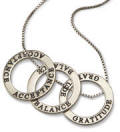
Sterling Affirmation Necklace Acceptance
Balance Gratitude

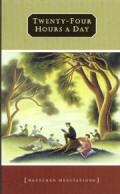
Twenty Four Hours A Day Softcover


God’s Window Afghan
“When God closes a door, he always opens
a window.”
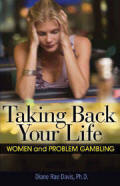
Taking Back Your Life: Women and Problem Gambling
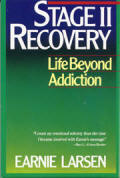
Stage II Recovery

Life Beyond Addiction
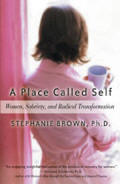
A Place Called Self

Women, Sobriety & Radical Transformation
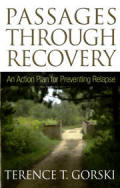
Passages Through Recovery
An Action Plan for
Preventing Relapse
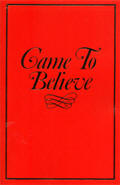
Came to Believe



Serenity Prayer and Waterfall
Art Print
Donnelly, Terry
Buy at AllPosters.com
 
Footprints Pocket Medallion

Click to see many
more medallions

The St. Francis Prayer Book: A Guide to Deepen Your Spiritual Life


Serenity Prayer with Three Doves Print

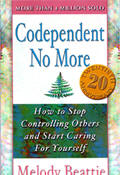
Codependent No More

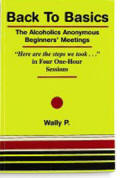
Back to Basics


90 Days, One Day at a Time : A New Beginning for People in Recovery

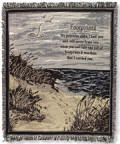
Footprints Afghan

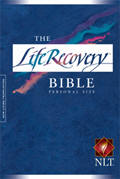
Life Recovery Bible Personal Size 2nd Edition

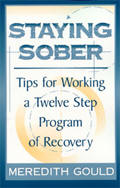
Staying Sober

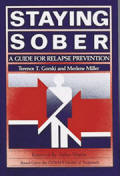
Staying Sober

A Guide for Relapse Prevention
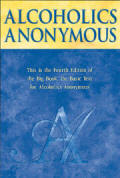
Alcoholics Anonymous Big Book 4th Edition Hardcover

|






Understanding
How Shame Affects Your Life







Interpreted
By The Hazelden Foundation













![]()















